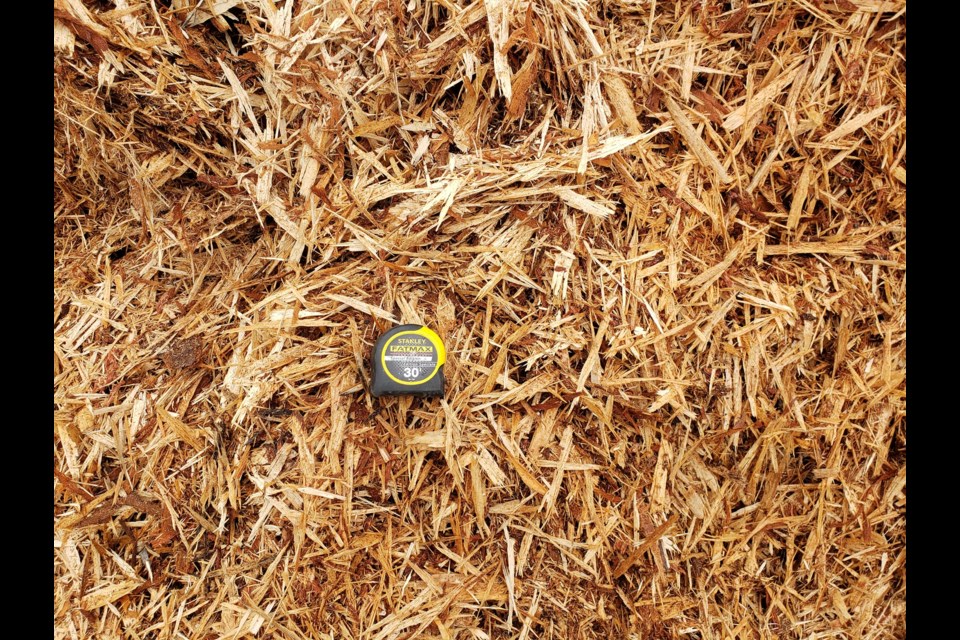Aaron Oberson has a lot of bark mulch. In addition to his regular duties as yard foreman at Continental Log Homes, he oversees the daily production and disposal of several dump trucks’ worth of wood waste produced by pole-shearing.
“It’s kind of been a mulch mountain here forever,” said Oberson. “The odd landscaper would ask about it and we’d fill them up and sometimes we’d get a couple bucks or sometimes we’d just say, ‘go ahead and take it,’ but it’s always been kind of an afterthought.
“But after a couple years of that, I kind of thought, 'There’s got to be something we can get out of this.' So we started to ask for a minimum donation to spread some money around the community.”
Since 2022, Continental has been asking for a minimum $5 donation in exchange for bark mulch. In their first year, they raised $743. In the second and third years, donations totalled about $2,000.
“What we ask for is when the person comes and donates, we get them to write their favourite charity or group that they want to see the money go to on a little piece of paper,” explained Oberson.
At the end of the season, they’ll draw some names and divvy up the donations between a couple groups. The first year saw the $743 divided between the Pemberton Animal Well-being Society (PAWS) and Pemberton Food Bank, according to a Facebook post. Last year, the money went toward the Lil’wat Christmas Hamper, Pemberton Food Bank, PAWS and the Unity Ball Hockey Tournament in Mount Currie.
“It’s not an Earth-shattering amount of money, but it’s a cool little program and it always helps to be able to give back to the community,” said Oberson.
New ventures
Continental can afford to donate their mulch proceeds to charity because it’s just a byproduct of their main business.
“We peel poles, so the mulch ends up being the waste,” Oberson told Pique. "It’s just part of doing business, but we have to find an avenue for the stuff to get rid of it.”
The issue isn’t unique to Continental; in B.C., a significant amount of wood waste is produced as a result of forestry and lumber production. These materials include branches and poor-quality logs on the logging front and sawdust and bark mulch on the processing side.
For Continental, disposing of the mulch has been a scattershot affair; they’ve sent it to farms in the Pemberton Valley and supplied soil-building efforts in Devine, but Oberson is hoping to see Continental partner to capitalize on that wasted wood.
One option, he said, is to follow the lead of other wood-processing outfits in B.C. who are turning waste wood into sellable, burnable briquettes, like BioFlame on Vancouver Island.
Another avenue is to use the wood as fuel for communities that use biomass to generate heat or energy. He cited Revelstoke—one of B.C.’s earliest adopters of a biomass boiler—whose 2005 Community Energy Project uses sawmill residuals from Downie Timber to generate and distribute heat. As of 2023, eight buildings were connected to the biomass facility.
“I think there’s some real potential for new avenues for the mulch,” said Oberson.
“We’ve always had places for it to go, but I think there’s definitely a product or benefit for Pemberton and Mount Currie and the surrounding areas that we could look into. It’s just about getting linked up with the right people.”
In the meantime, you can take some mulch off Continental’s hands by donating and nominating your favourite local organization at their location in Mount Currie.




